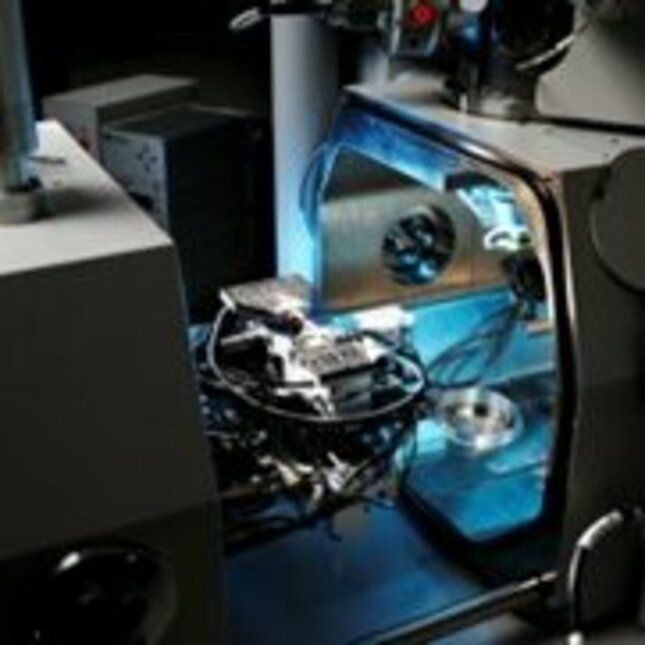How do you build a high-tech device? How do you develop new materials? How do you perform efficient engineering? How do you make cradle-to-cradle production a reality? How does advanced manufacturing enable the energy transition and sustainable practices? If these questions spark your curiosity, then the Master’s track in Advanced Manufacturing across the Scales (AMS) at TU/e is right up your alley.
Manufacturing is the key to enhancing societal well-being. Performance of machines, devices and systems that help us explore the world rely on fundamental science disciplines – physics, chemistry, and biology – and on engineering design and sustainability principles. New manufacturing technologies are also revolutionizing how we make things. Consider for example additive manufacturing, nanoscale machining and assembly, material breakthroughs and AI. Studying AMS encompasses these aspects and materializes great ideas to tackle the challenges our world faces. AMS engineers understand how materials behave and the governing principles behind each manufacturing technology. They develop new devices, master computational tools for digital twins, and enable the sustainable use of resources – for breakthroughs in the mobility, communications, health, and energy sectors.

What’s in it for me?
AMS is about grasping a fundamental understanding of materials and how to shape them into tangible devices, while mastering the experimental and digital tools required in the manufacturing of products. The fundamental underpinning of this master’s track helps you become an eclectic specialist, capable of making an impact in industry and society by means of technological breakthroughs. The track’s multidisciplinarity, a core principle of mechanical engineering, provides you with the learning environment to experience how to work together effectively in research and development teams, either in industry or knowledge institutes, like in the Brainport’s ecosystem.
What’s the track all about?
A core of multiscale fabrication technologies and materials science and engineering is coupled with valuable tools of advanced engineering mathematics, computational methods and optimization algorithms, structural materials performance and fracture mechanics, principles of control theory and multiphysics systems. AMS offers a balanced mix of theory, experiments and modelling, which merge in the course program and interdisciplinary projects. You have access to high-performance computing facilities and state-of-the-art AMS labs (Microfab/lab, Multiscale Lab, and the upcoming AM Lab).
Why would this master’s track be a good fit for me?
If you are interested in developing meaningful products, new materials and cradle-to-cradle manufacturing strategies, the AMS Master’s track is the perfect fit for you. The track requires a bachelor's degree in a field related to mechanical engineering, applied physics, material sciences, nanotechnology, or chemical engineering. You should have prior knowledge of differential equations, numerical and statistical methods, chemistry, continuum and quantum mechanics principles, thermo-dynamics, and transport phenomena.
Why should I follow this master’s track at the TU/e?
The Netherlands has been at the forefront of advanced manufacturing methods for decades, training highly skilled engineers and researchers for high-tech industries. In Eindhoven – at the heart of the Brainport region – the advanced manufacturing expertise has found its way to groundbreaking enterprises, like ASML and many more. The region’s high-tech ecosystem creates an unparalleled environment to drive innovation, in which the demand for AMS graduates is high. As an AMS engineer, you have the knowledge and skills to tackle complex and urgent societal issues that depend on manufacturing innovation.
Chat with our students
RELATED MASTER'S PROGRAM AND TRACKS
Visit us
Do you want to stay informed about important information about studying at TU/e and upcoming events? Then create an account in MyStart@TU/e!
Contact

This program is NVAO-accredited. In the Netherlands, the NVAO assesses the internal quality assurance of universities and colleges and the quality of their programs.
